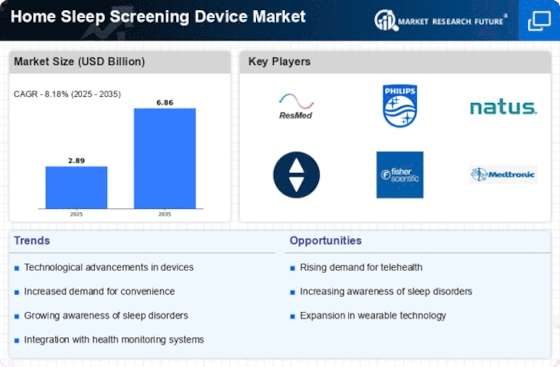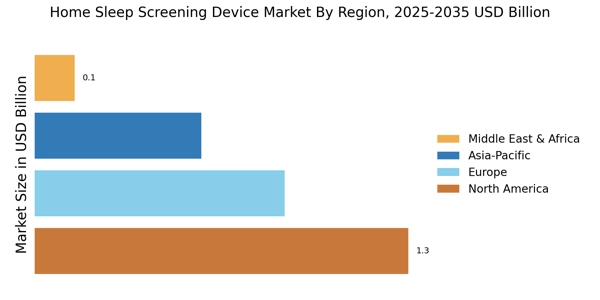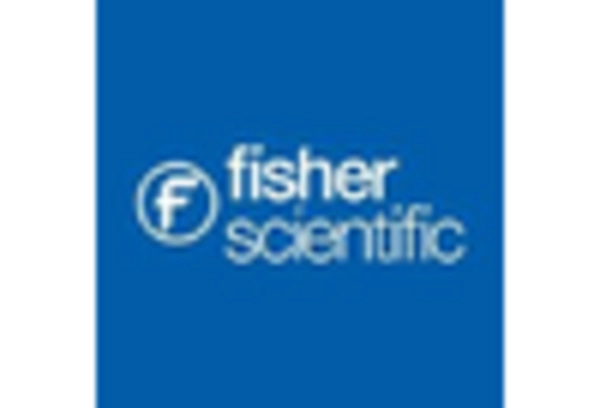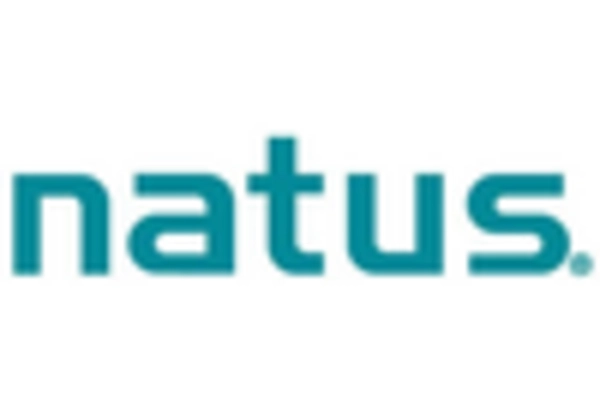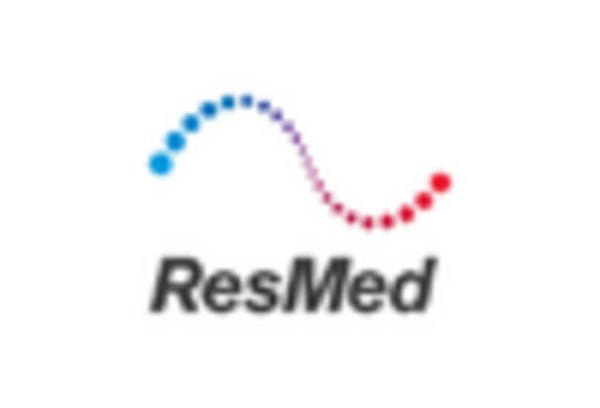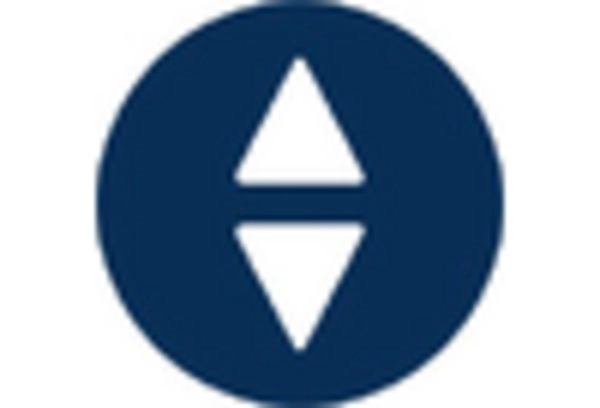Rising Prevalence of Sleep Disorders
The increasing prevalence of sleep disorders, such as sleep apnea and insomnia, is a primary driver for the Home Sleep Screening Device Market. According to recent estimates, approximately 30% of adults experience sleep-related issues, leading to a heightened demand for effective screening solutions. This trend is likely to continue as awareness of the health implications associated with untreated sleep disorders grows. The Home Sleep Screening Device Market is positioned to benefit from this rising demand, as more individuals seek convenient and accessible methods to monitor their sleep patterns. Furthermore, the integration of advanced technologies in these devices enhances their appeal, potentially increasing market penetration and consumer adoption.
Growing Demand for Preventive Healthcare
The growing emphasis on preventive healthcare is significantly influencing the Home Sleep Screening Device Market. As individuals become more proactive about their health, there is an increasing interest in early detection and management of sleep disorders. This shift towards preventive measures is reflected in the rising sales of home screening devices, which allow users to monitor their sleep without the need for clinical visits. Market data indicates that the preventive healthcare sector is expanding rapidly, with consumers willing to invest in technologies that promote better health outcomes. Consequently, the Home Sleep Screening Device Market stands to gain from this trend, as more people recognize the importance of sleep health in overall well-being.
Increased Accessibility and Affordability
Increased accessibility and affordability of home sleep screening devices are pivotal factors driving the Home Sleep Screening Device Market. The proliferation of e-commerce platforms and retail outlets has made these devices more available to a broader audience. Additionally, competitive pricing strategies have emerged, making it feasible for a larger segment of the population to invest in sleep monitoring solutions. This trend is particularly relevant in regions where healthcare access is limited, as home screening devices offer a practical alternative to traditional sleep studies. As affordability continues to improve, the Home Sleep Screening Device Market is likely to experience substantial growth, catering to diverse consumer needs.
Integration with Health and Wellness Trends
The integration of home sleep screening devices with broader health and wellness trends is a notable driver for the Home Sleep Screening Device Market. As consumers increasingly prioritize holistic health approaches, sleep is recognized as a critical component of overall wellness. This awareness has led to a surge in interest in devices that not only monitor sleep but also provide insights into lifestyle factors affecting sleep quality. The Home Sleep Screening Device Market is benefiting from partnerships with fitness and wellness brands, enhancing the visibility and appeal of these devices. As the trend towards comprehensive health management continues, the market is expected to expand, attracting consumers who seek to optimize their sleep as part of their wellness journey.
Technological Innovations in Sleep Monitoring
Technological innovations play a crucial role in shaping the Home Sleep Screening Device Market. The advent of sophisticated sensors and algorithms has led to the development of devices that provide accurate and comprehensive sleep assessments. For instance, devices that utilize artificial intelligence to analyze sleep data are gaining traction among consumers. This technological evolution not only improves the reliability of sleep screenings but also enhances user experience through features such as mobile app connectivity and real-time feedback. As these innovations continue to emerge, they are expected to drive growth in the Home Sleep Screening Device Market, attracting both new users and healthcare professionals who advocate for at-home sleep assessments.


